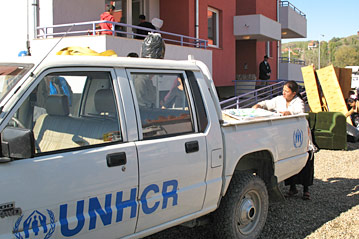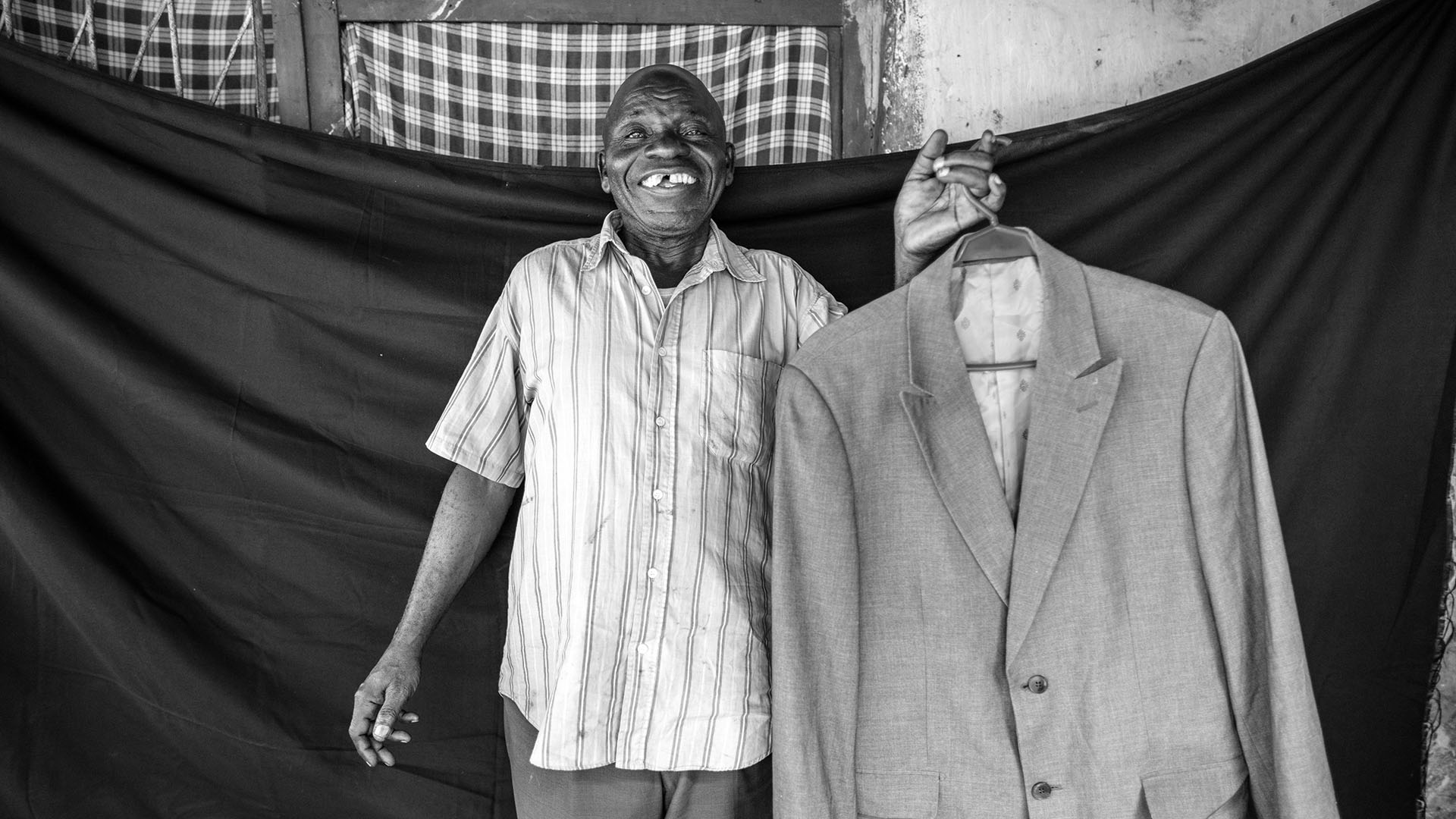Almost 100 Roma return to Kosovo city
Almost 100 Roma return to Kosovo city

MITROVICA, Kosovo, October 16 (UNHCR) - The UN refugee agency has helped 92 members of Kosovo's minority Roma, Ashkalia and Egyptian (RAE) communities to return to their home district in the divided city of Mitrovica.
The returnees, from 18 families, arrived back in the city's southern district of Roma Mahala on Monday and Tuesday. They had fled from Mitrovica in 1999 and found shelter in northern areas of Kosovo as well as Montenegro and the city of Novi Sad in Serbia.
The 92 Roma moved into two new apartment blocks in Roma Mahala, which was destroyed after its 8,000 inhabitants fled eight years ago fearing attacks from extremists. The municipality of Mitrovica granted the land on which the new apartment blocks were built.
The returnees were welcomed back by UNHCR officials and by Fatmire Berisha, deputy president of the municipal assembly in Mitrovica, who pledged to assist their reintegration. "We are pleased to see people coming back to their homes ... to start a new life," said Sunil Thapa, head of the UNHCR field office in Mitrovica.
Returnees receive food and non-food packages for an initial period of three months. The UN refugee agency will help and advise them in areas such as property rights, socio-economic rights, civil registration, and capacity-building and income-generating initiatives.
UNHCR began the assisted return of displaced RAE community members to Roma Mahala in March, when 118 people came back. The returnees have said they do not see security as a major issue, but police will patrol the area.
Minire,* a mother of two, was happy to be back after eight years spent in a series of collective centres. "We lived with poverty, without proper hygienic conditions, and my children were sick many times," she recalled. "I have been crying with happiness during these past few days," Minire added.
There are few employment opportunities in Roma Mahala, though enterprising residents have set up a handful of small businesses, including an internet café, a bar and a dressmaking shop. Minire hopes she can use her skills as a trained hairdresser to make some money.
Siblings Agron,* 11, and Lumnije,* 10, were too young to remember the district, but they were excited about moving into a new home and busily helped their parents take their belongings into one of the apartment blocks. They were also looking forward to enrolling in school.
"We changed places so often and for some time we were obliged to pay rent for a flat," said their mother, recalling their long absence in the north of Kosovo. "I mainly did housework during those seven to eight years."
This week's operation was conducted as part of the Roma Mahala Return Project, which is being coordinated by the municipal authorities in cooperation with UNHCR and other partners such as the Organization for Security and Cooperation in Europe (OSCE), the United Nations Mission in Kosovo and the Danish Refugee Council. It is one of the biggest return projects in Kosovo.
During the March-June 1999 conflict in Kosovo, more than 900,000 ethnic Albanians were forced to flee Kosovo. They returned when NATO troops entered Kosovo - the exodus of some 200,000 Serbs, Roma, Ashkalia, Egyptians and other minorities began within days. Some 17,300 of them have since returned to their homes in Kosovo, according to UNHCR estimates.
The Ibar River running through Mitrovica has since 1999 become a symbol of Kosovo's division, with ethnic Albanians living in the south of the city and Serbs concentrated in the north. UNHCR estimates that there are some 21,000 people belonging to all communities displaced within Kosovo.
* Names changed for protection reasons.
By Peninah Muriithi and Shpend Halili in Mitrovica, Kosovo








